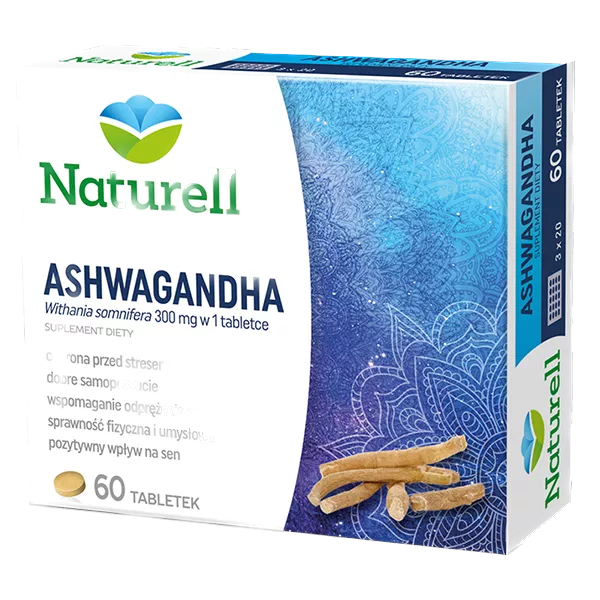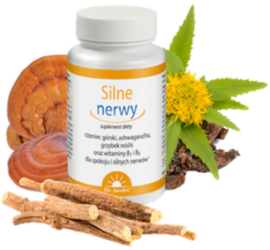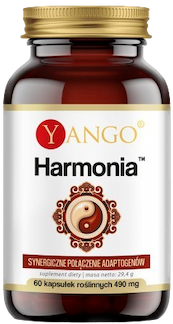Best ashwagandha supplement for stress & sleep: top 10+ for 2025
The best ashwagandha should be both effective and safe.


Learn more about our editorial process
.

Learn more about our editorial process
.

Learn more about our editorial process
.

Learn more about our editorial process
.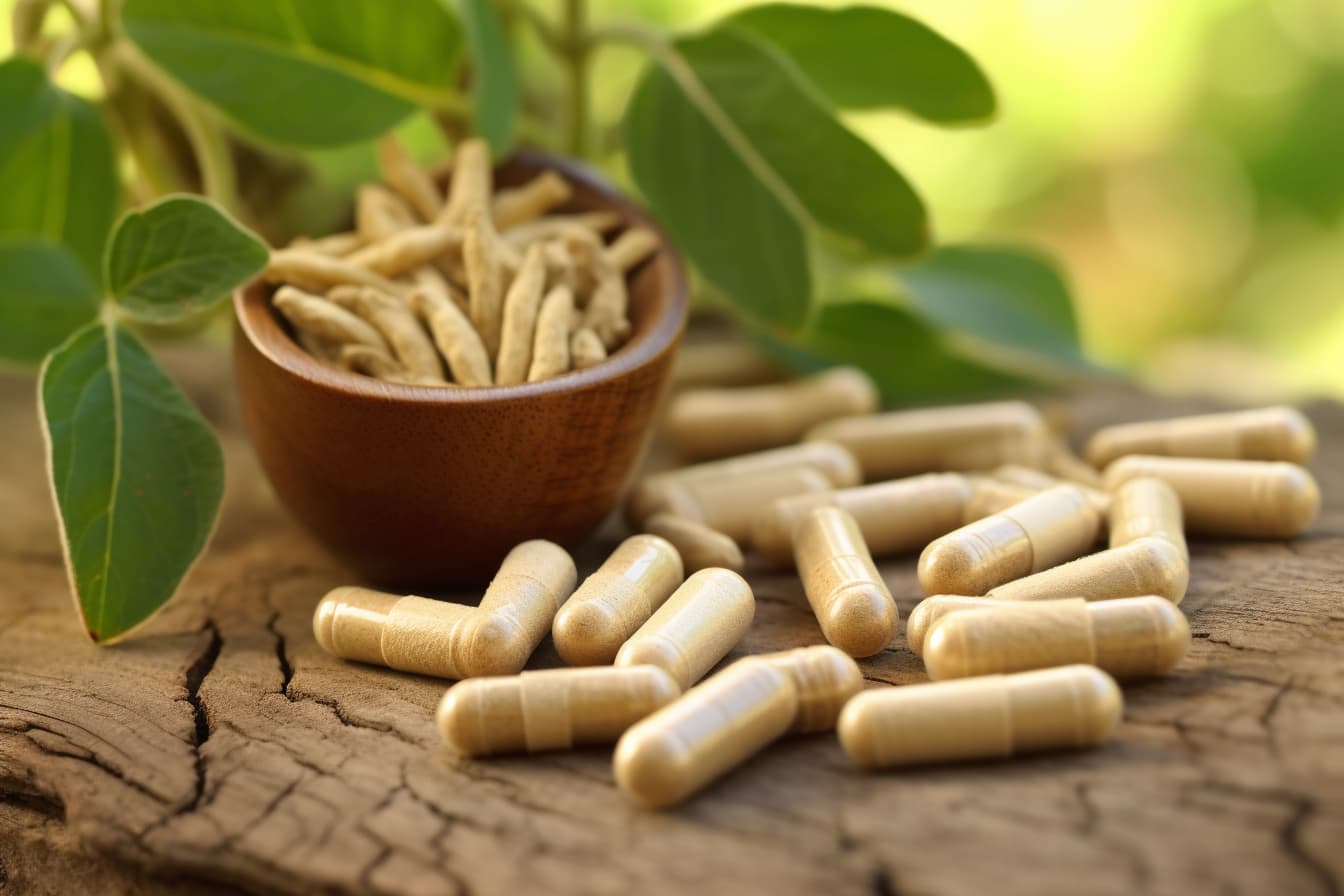
Why you can trust us
Articles on Natu.Care are written based on scientific research, data from government websites and other reliable sources. The texts are written in cooperation with doctors, nutritionists and other health and beauty experts. Articles are reviewed before publication and during significant updates.
.Learn more about our editorial process
.Information about advertisements
Content on Natu.Care may contain links to products from the sale of which we may receive a commission. When creating content, we adhere to high editorial standards and take care to be objective about the products discussed. The presence of affiliate links is not dictated by our partners, and we select the products we review ourselves completely independently.
.Learn more about our terms and Conditions
.The best ashwagandha is effective, safe and also quite affordable. These are the three most important aspects to consider when buying a supplement. Easy to say, harder to do -you've probably thought.
That's why, together with MA Pharmacy, we will suggest you the best ashwagandha products for 2024.
From this article you will learn:
.- Which ashwgandha is best. .
- Who should consider using it. .
- What to look for when choosing ashwagandha. .
See also:
.
- Ashwagandha
- Ashwagandha - dosage
- Ashwagandha - morning or night? .
- Ashwagandha - when does it start working?
- Indian ginseng
- Adaptogens
Ashwagandha - which is the best?
.
The best ashwagandha on the market is Naturell Ashwagandha. It is distinguished by a standardised extract of ashwagandha leaves and root and a 7% content of vitanolides. This makes Naturell Ashwagandha not only effective, but also safe for the body. Also on the plus side is the relatively low price of the product.
Best ashwgandha - ranking
Ashwagandha Naturell
Product description
Extract from ashwagandha leaves and root will boost energy, overcome fatigue, improve memory and concentration. The product is recommended during periods of increased physical tension or intense physical activity.
Pros and cons
Extract from ashwagandha leaves and root will boost energy, overcome fatigue, improve memory and concentration. The product is recommended during periods of increased physical tension or intense physical activity.
Additional information
Extract from ashwagandha leaves and root will boost energy, overcome fatigue, improve memory and concentration. The product is recommended during periods of increased physical tension or intense physical activity.
Dr. Jacob's Strong Nerves
Product description
Dr. Jacob's Strong Nerves is a dietary supplement thatóry supports the nervous system and helps the body to cope with stress. Thanks to the synergistic combination of beneficial ingredientsós, Strong Nerves relieves anxiety symptoms, increases mental and physical stamina, and supports concentration.
The benefits of this supplement are particularly important for peopleóly exposed to chronic stress, those with sleep problems or employeesóly. It is worth mentioning that the supplement can also help to improve mental well-being and support the immune system.
.All this makes Dr. Jacob's Strong Nerves an excellent remedy for anyone looking for comprehensive support for their nervous system and overall mental performance.
Pros and cons
Dr. Jacob's Strong Nerves is a dietary supplement thatóry supports the nervous system and helps the body to cope with stress. Thanks to the synergistic combination of beneficial ingredientsós, Strong Nerves relieves anxiety symptoms, increases mental and physical stamina, and supports concentration.
The benefits of this supplement are particularly important for peopleóly exposed to chronic stress, those with sleep problems or employeesóly. It is worth mentioning that the supplement can also help to improve mental well-being and support the immune system.
.All this makes Dr. Jacob's Strong Nerves an excellent remedy for anyone looking for comprehensive support for their nervous system and overall mental performance.
Additional information
Dr. Jacob's Strong Nerves is a dietary supplement thatóry supports the nervous system and helps the body to cope with stress. Thanks to the synergistic combination of beneficial ingredientsós, Strong Nerves relieves anxiety symptoms, increases mental and physical stamina, and supports concentration.
The benefits of this supplement are particularly important for peopleóly exposed to chronic stress, those with sleep problems or employeesóly. It is worth mentioning that the supplement can also help to improve mental well-being and support the immune system.
.All this makes Dr. Jacob's Strong Nerves an excellent remedy for anyone looking for comprehensive support for their nervous system and overall mental performance.
Solve Labs Brain Tech Memory & Focus, adaptogens, capsules

- Composition: bacopa monieri, gotu kola, rhoiola rosea, ginseng, zinc gluconate, choline, vitamin B6
- Form: capsules .
- Packaging: 30 or 60 capsules .
- Dose: 2 capsules daily .
- Sufficient for: 10 or 20 days .
Product description
Adaptogens, vitamins and minerals to support the mózg and nervous system. Brain Tech has been developed for people needing long-lasting concentration, improved learning ability, memory and increased resistance to stress.
Pros and cons
Adaptogens, vitamins and minerals to support the mózg and nervous system. Brain Tech has been developed for people needing long-lasting concentration, improved learning ability, memory and increased resistance to stress.
Additional information
Adaptogens, vitamins and minerals to support the mózg and nervous system. Brain Tech has been developed for people needing long-lasting concentration, improved learning ability, memory and increased resistance to stress.
Adaptogens, vitamins and minerals to support the mózg and nervous system. Brain Tech has been developed for people needing long-lasting concentration, improved learning ability, memory and increased resistance to stress.
YANGO, Harmony, adaptogens, capsules
Product description
This dietary supplement contains a synergistic combination of 5 plant extracts that positively influence the body's homeostasis and well-being. The product is recommended for people living under stress, tension and those who are physically active.
Pros and cons
This dietary supplement contains a synergistic combination of 5 plant extracts that positively influence the body's homeostasis and well-being. The product is recommended for people living under stress, tension and those who are physically active.
Additional information
This dietary supplement contains a synergistic combination of 5 plant extracts that positively influence the body's homeostasis and well-being. The product is recommended for people living under stress, tension and those who are physically active.
Product tiles contain affiliate links. As An Amazon Partner, I earn from qualifying purchases.
Who should consider using ashwagandha?
.
Supplementation with ashwagandha - an herb used in Ayurveda - should be considered by those looking for natural solutions to relieve stress, as well as improve mental and physical wellbeing. It can be beneficial for those experiencing constant fatigue, struggling with sleep or concentration problems.
Best ashwgandha - for whom?
- People experiencing stress and anxiety. Ashwagandha is known for its adaptogenic effects, meaning it helps the body cope with stress. It reduces levels of cortisol, the stress hormone, which helps to support mood and improve overall wellbeing.
- People with sleep problems. Research suggests that ashwagandha may help improve sleep quality and fight insomnia. It has calming properties that may promote deep, healthy sleep. .
- People having trouble concentrating and remembering. Ashwagandha's effects on cortisol levels may also help improve concentration and memory, which are often affected by stress.
- People experiencing chronic fatigue. Ashwagandha helps the body adapt to stressful situations. Adaptogens can improve overall energy and stamina, helping to combat feelings of chronic fatigue.
What to look for when choosing an ashwagandha supplement?
.
When choosing an ashwagandha supplement, keep in mind a few key aspects that determine the quality and effectiveness of the product. First and foremost, pay attention to the standardisation of the supplement. It ensures that the same amount of the active ingredient is present in each batch of the product.
In the case of ashwagandha, the most important are the vitanolides, which are the main active ingredient of this plant. A quality product should contain at least 2.5 per cent vitanolides.
As for ashwagandha, this is the most important active ingredient.
Another important factor is the DER (Drug Extract Ratio), which tells us how much plant material was used to produce one part of the extract obtained. Some brands may use a large amount of raw material and then dilute the extract, resulting in fewer active ingredients in the final product. The higher the DER ratio, the better the quality of the supplement.
Also remember to always choose products from reputable manufacturers who guarantee the purity and quality of their supplements. Read the product label and make sure it contains all the information listed above - this will show that the manufacturer is fully transparent and has a reliable approach to the quality of their supplements.
Specially important are quality certificates. Among others, those that demonstrate good manufacturing practice.
 .
.
Ilona Krzak Master of Pharmacy
.
Which form of ashwagandha is best?
.
The best form of ashwagandha depends on individual preference. It is therefore important to choose the form that is most convenient and effective for you. The most popular forms are tablets, powder, capsules and decoction. What are the characteristics of these solutions?
|
Position |
What is characterised by? |
|
Tablets . |
Ashwagandha tablets are easy to use and can also be divided if required. They can also be easily carried with you and consumed anywhere. The downside for some people, however, may be swallowing the tablets, which are sometimes quite large. |
|
Powder |
Ashwagandha powder has the advantage of being very versatile - it can be added to a variety of foods or drinks. This allows you to adjust the dosage individually. However, storage can be quite difficult. Moreover, the powder involves the need to portion it yourself. |
|
Capsules |
Capsules are convenient to use, easy to store and dose. Therefore, they are a good alternative for people who are not fond of the specific taste of ashwagandha. |
|
Vegetable |
An ashwagandha decoction is good for those who prefer natural methods of preparing herbs. However, it requires more time and skill than other methods. Instead, it provides a unique opportunity to customise the taste and intensity of the drink. |
Ashwagandha - dosage
.
Ashwagandha dosage depends on the form in which it is consumed and individual goals and needs. It is recommended that 300 to 800 mg of the extract standardised to 5-10% vitanolides be taken daily. This is the most commonly used and researched amount that shows beneficial health effects.
If you prefer to consume the powdered root, the recommended dose is 3 to 6 grams per day. It can be added to drinks or foods. For those who prefer to consume ashwagandha in tea form, a good amount is in turn 1 to 2 tea spoons of the root per day.
If you prefer to consume ashwagandha in tea form, a good amount is 1 to 2 tea spoons of the root per day.
Remember, however, that each dose should be adjusted individually, and if in any doubt, consult your doctor or pharmacist.
About 2.5% vitanolides is the absolute minimum. Even so, the dose also depends on the portion of ashwagandha used..
 .
.
Ilona Krzak Master of Pharmacy
.
After how long will you see the effects of ashwagandha?
.
The time after which you may see effects of ashwagandha use, may vary from person to person. This is related to individual body response, supplement dosage and lifestyle.
Generally, many studies suggest that noticeable changes can occur after about four to 12 weeks of regular use. Effects such as improved mood, reduced stress levels and improved sleep quality start to become noticeable when supplementation becomes part of a daily routine.
Contraindications to the use of ashwaghanda
.
Although ashwagandha is a natural supplement known for its many health benefits, there are some contraindications and limitations that should be considered before starting its use. People with certain medical conditions or those taking certain medications should consult their doctor before taking ashwagandha.
Who should not use ashwaghanda:
.
- .
- underage, .
- pregnant and breastfeeding women, .
- cancer patients, .
- patients with the following diseases: autoimmune, thyroid, multiple sclerosis, type I diabetes, rheumatoid arthritis, .
- persons with blood clotting disorders, as well as diseases of the digestive system or liver.
Ashwagandha - side effects
.
Ashwagandha is generally well tolerated, however some people may experience side effects. The most common side effects that can occur after taking ashwagandha are digestive problems such as nausea, diarrhoea or heartburn. This may be due to individual sensitivity to this plant.
Rarely, more serious side effects such as dizziness, fatigue or drowsiness may occur. Some experts also suggest that over-consumption of ashwagandha may affect blood sugar levels and blood pressure, so people with diabetes or low blood pressure should be cautious about supplementation.
The following is a summary of the effects of ashwagandha.
See also:
- Cordyceps (maccharide)
- Chaga
- Reishi
- Hogweed
- Berberine
- Adaptogens
- Cordyceps
- Caffeine
- Maca root
- Spirulina
Summary
.
- The best ashwagandha on the market is Naturell's Ashwagandha, due to its effectiveness, safety and price.
- Ashwagandha is indicated for those looking for a natural way to increase mental and physical fitness, relieve stress, improve sleep and concentration.
- Ashwagandha is also recommended for those looking for a natural way to increase mental and physical fitness, relieve stress, improve sleep and concentration.
- When choosing an ashwagandha supplement, it is worth considering aspects such as the standardisation of the supplement (high vitanolides content), the DER (amount of raw material used per amount of extract) and the manufacturer's reputation.
- The best form of ashwagandha to take (tablets, powder, capsules, decoction) is the one that will be most convenient for you.
- The dosage of ashwagandha depends on the form of ingestion and individual needs. .
- Significant effects of ashwagandha can be seen after 4-12 weeks of regular use. .
- Ashwagandha is contraindicated for minors, pregnant or breastfeeding women, patients with cancer, autoimmune diseases, type I diabetes, multiple sclerosis, rheumatoid arthritis or gastrointestinal ailments.
- Potential side effects of ashwagandha use include digestive problems, less common dizziness, fatigue, drowsiness, effects on blood sugar levels and blood pressure.
FAQ
.What are the potential interactions of ashwagandha with other drugs?
.Ashwagandha may interact with some medications, including benzodiazepines, antiepileptics and antihypertensive agents. It may also exacerbate hypoglycaemia in people taking diabetes medication.
Is ashwagandha safe for people with thyroid disease?
.People with thyroid disease, particularly Hashimoto's disease, should be cautious about using Ashwagandha as it may modulate thyroid activity.
Can I consume ashwagandha while breastfeeding?
.It is not recommended that ashwagandha be consumed by women who are breastfeeding. There is a lack of solid research on this topic, so always consult your doctor or pharmacist before starting supplementation.
Can ashwagandha help treat depression?
.Ashwagandha is a known adaptogen and may help manage stress and improve mood. Several studies have shown that it can support the alleviation of depressive symptoms. Remember, however, that it is not a substitute for professional psychological or psychiatric help. If you are undergoing such treatment, always consult your specialist about supplementation.
What time of day should I take Ashwagandha?
.There are no specific guidelines for the ideal time of day to consume ashwagandha. Each person may react differently to the supplement, so it is worth trying different times of day and seeing which works best for you.
Can children take Ashwagandha?
.Ashwagandha is not usually recommended for children, as there is not yet sufficient research on its safety and effectiveness in this age group. Always consult your paediatrician before giving any supplement to your child.
Can I combine Ashwagandha supplementation with other supplements?
.Yes, Ashwagandha can be combined with other supplements. However, always consult your doctor or pharmacist if you plan to combine supplements to be sure they are safe and effective together.
Sources
.See all
.Ahmad, M. K., Mahdi, A. A., Shukla, K. K., Islam, N., Rajender, S., Madhukar, D., Shankhwar, S. N., & Ahmad, S. (2010). Withania somnifera improves semen quality by regulating reproductive hormone levels and oxidative stress in seminal plasma of infertile males. Fertility and Sterility, 94(3), 989-996. https://doi.org/10.1016/j.fertnstert.2009.04.046
Ahmed, W., Mofed, D., Zekri, A.-R., El-Sayed, N., Rahouma, M., & Sabet, S. (2018). Antioxidant activity and apoptotic induction as mechanisms of action of Withania somnifera (Ashwagandha) against a hepatocellular carcinoma cell line. The Journal of International Medical Research, 46(4), 1358-1369. https://doi.org/10.1177/0300060517752022
Anwer, T., Sharma, M., Pillai, K. K., & Iqbal, M. (2008). Effect of Withania somnifera on insulin sensitivity in non-insulin-dependent diabetes mellitus rats. Basic & Clinical Pharmacology & Toxicology, 102(6), 498-503. https://doi.org/10.1111/j.1742-7843.2008.00223.x
Ashwagandha. (2012). In LiverTox: Clinical and Research Information on Drug-Induced Liver Injury. National Institute of Diabetes and Digestive and Kidney Diseases. http://www.ncbi.nlm.nih.gov/books/NBK548536/
Björnsson, H. K., Björnsson, E. S., Avula, B., Khan, I. A., Jonasson, J. G., Ghabril, M., Hayashi, P. H., & Navarro, V. (2020). Ashwagandha-induced liver injury: A case series from Iceland and the US Drug-Induced Liver Injury Network. Liver International, 40(4), 825-829. https://doi.org/10.1111/liv.14393
Chandrasekhar, K., Kapoor, J., & Anishetty, S. (2012). A Prospective, Randomized Double-Blind, Placebo-Controlled Study of Safety and Efficacy of a High-Concentration Full-Spectrum Extract of Ashwagandha Root in Reducing Stress and Anxiety in Adults. Indian Journal of Psychological Medicine, 34(3), 255-262. https://doi.org/10.4103/0253-7176.106022
Cheah, K. L., Norhayati, M. N., Husniati Yaacob, L., & Abdul Rahman, R. (2021). Effect of Ashwagandha (Withania somnifera) extract on sleep: A systematic review and meta-analysis. PloS One, 16(9), e0257843. https://doi.org/10.1371/journal.pone.0257843
Choudhary, B., Shetty, A., & Langade, D. G. (2015). Efficacy of Ashwagandha (Withania somnifera [L.] Dunal) in improving cardiorespiratory endurance in healthy athletic adults. Ayu, 36(1), 63-68. https://doi.org/10.4103/0974-8520.169002
Cooley, K., Szczurko, O., Perri, D., Mills, E. J., Bernhardt, B., Zhou, Q., & Seely, D. (2009). Naturopathic Care for Anxiety: A Randomized Controlled Trial ISRCTN78958974. PLOS ONE, 4(8), e6628. https://doi.org/10.1371/journal.pone.0006628
.Dongre, S., Langade, D., & Bhattacharyya, S. (2015). Efficacy and Safety of Ashwagandha (Withania somnifera) Root Extract in Improving Sexual Function in Women: A Pilot Study. BioMed Research International, 2015, e284154. https://doi.org/10.1155/2015/284154
Jędruszczak, P., Zdun, S., Walczak, K., Wesołowska, Z., & Gaweł, W. (2023). Ashwagandha (Withania somnifera) - influence on sleep: Review. Quality in Sport, 9(1), Article 1. https://doi.org/10.12775/QS.2023.09.01.005
.Kumar, A., & Kalonia, H. (2008). Effect of Withania somnifera on Sleep-Wake Cycle in Sleep-Disturbed Rats: Possible GABAergic Mechanism. Indian Journal of Pharmaceutical Sciences, 70(6), 806-810. https://doi.org/10.4103/0250-474X.49130
Langade, D., Kanchi, S., Salve, J., Debnath, K., & Ambegaokar, D. (n.d.). Efficacy and Safety of Ashwagandha (Withania somnifera) Root Extract in Insomnia and Anxiety: A Double-blind, Randomized, Placebo-controlled Study. Cureus, 11(9), e5797. https://doi.org/10.7759/cureus.5797
Lopresti, A. L., Smith, S. J., Malvi, H., & Kodgule, R. (2019). An investigation into the stress-relieving and pharmacological actions of an ashwagandha (Withania somnifera) extract: A randomized, double-blind, placebo-controlled study. Medicine, 98(37), e17186. https://doi.org/10.1097/MD.0000000000017186
Lubarska, M., Halasinski, P., Hryhorowicz, S., Mahadea, D. S., Łykowska-Szuber, L., Eder, P., Dobrowolska, A., & Krela-Kaźmierczak, I. (2023). Liver Dangers of Herbal Products: A Case Report of Ashwagandha-Induced Liver Injury. International Journal of Environmental Research and Public Health, 20(5), 3921. https://doi.org/10.3390/ijerph20053921
Nasimi Doost Azgomi, R., Zomorrodi, A., Nazemyieh, H., Fazljou, S. M. B., Sadeghi Bazargani, H., Nejatbakhsh, F., Moini Jazani, A., & Ahmadi AsrBadr, Y. (2018). Effects of Withania somnifera on Reproductive System: A Systematic Review of the Available Evidence. BioMed Research International, 2018, e4076430. https://doi.org/10.1155/2018/4076430
Panda, S., & Kar, A. (1998). Changes in thyroid hormone concentrations after administration of ashwagandha root extract to adult male mice. The Journal of Pharmacy and Pharmacology, 50(9), 1065-1068. https://doi.org/10.1111/j.2042-7158.1998.tb06923.x
Pingali, U., Pilli, R., Fatima, N., & Fatima, N. (2014). Effect of Standardized Aqueous Extract of Withania Somniferaon Tests of Cognitive and Psychomotor Performance in Healthy Human Participants. Pharmacognosy Research, 6(1), 12-18. https://doi.org/10.4103/0974-8490.122912
Remenapp, A., Coyle, K., Orange, T., Lynch, T., Hooper, D., Hooper, S., Conway, K., & Hausenblas, H. A. (2022). Efficacy of Withania somnifera supplementation on adult's cognition and mood. Journal of Ayurveda and Integrative Medicine, 13(2), 100510. https://doi.org/10.1016/j.jaim.2021.08.003
Sahin, K., Orhan, C., Akdemir, F., Tuzcu, M., Gencoglu, H., Sahin, N., Turk, G., Yilmaz, I., Ozercan, I. H., & Juturu, V. (2016). Comparative evaluation of the sexual functions and NF-κB and Nrf2 pathways of some aphrodisiac herbal extracts in male rats. BMC Complementary and Alternative Medicine, 16(1), 318. https://doi.org/10.1186/s12906-016-1303-x
Salve, J., Pate, S., Debnath, K., Langade, D., Salve, J., Pate, S., Debnath, K., & Langade, D. G. (2019). Adaptogenic and Anxiolytic Effects of Ashwagandha Root Extract in Healthy Adults: A Double-blind, Randomized, Placebo-controlled Clinical Study. Cureus, 11(12). https://doi.org/10.7759/cureus.6466
Sharma, A. K., Basu, I., & Singh, S. (2018). Efficacy and Safety of Ashwagandha Root Extract in Subclinical Hypothyroid Patients: A Double-Blind, Randomized Placebo-Controlled Trial. The Journal of Alternative and Complementary Medicine, 24(3), 243-248. https://doi.org/10.1089/acm.2017.0183
Singh, N., Bhalla, M., Jager, P. de, & Gilca, M. (2011). An Overview on Ashwagandha: A Rasayana (Rejuvenator) of Ayurveda. African Journal of Traditional, Complementary and Alternative Medicines, 8(5S), Article 5S. https://doi.org/10.4314/ajtcam.v8i5S.9
Srivastava, A. N., Ahmad, R., & Khan, M. A. (2016). Evaluation and Comparison of the In Vitro Cytotoxic Activity of Withania somnifera Methanolic and Ethanolic Extracts against MDA-MB-231 and Vero Cell Lines. Scientia Pharmaceutica, 84(1), Article 1. https://doi.org/10.3797/scipharm.1507-13
Tharakan, A., Shukla, H., Benny, I. R., Tharakan, M., George, L., & Koshy, S. (2021). Immunomodulatory Effect of Withania somnifera (Ashwagandha) Extract-A Randomized, Double-Blind, Placebo Controlled Trial with an Open Label Extension on Healthy Participants. Journal of Clinical Medicine, 10(16), 3644. https://doi.org/10.3390/jcm10163644
Udayakumar, R., Kasthurirengan, S., Mariashibu, T. S., Rajesh, M., Anbazhagan, V. R., Kim, S. C., Ganapathi, A., & Choi, C. W. (2009). Hypoglycaemic and Hypolipidaemic Effects of Withania somnifera Root and Leaf Extracts on Alloxan-Induced Diabetic Rats. International Journal of Molecular Sciences, 10(5), 2367-2382. https://doi.org/10.3390/ijms10052367
Verma, N., Gupta, S. K., Tiwari, S., & Mishra, A. K. (2021). Safety of Ashwagandha Root Extract: A Randomized, Placebo-Controlled, study in Healthy Volunteers. Complementary Therapies in Medicine, 57, 102642. https://doi.org/10.1016/j.ctim.2020.102642
Wang, J., Zhang, H., Kaul, A., Li, K., Priyandoko, D., Kaul, S. C., & Wadhwa, R. (2021). Effect of Ashwagandha Withanolides on Muscle Cell Differentiation. Biomolecules, 11(10), 1454. https://doi.org/10.3390/biom11101454
Wankhede, S., Langade, D., Joshi, K., Sinha, S. R., & Bhattacharyya, S. (2015). Examining the effect of Withania somnifera supplementation on muscle strength and recovery: A randomized controlled trial. Journal of the International Society of Sports Nutrition, 12(1), 43. https://doi.org/10.1186/s12970-015-0104-9
Weber, S., & Gerbes, A. L. (2021). Ashwagandha-Induced Liver Injury: Self-Reports on Commercial Websites as Useful Adjunct Tools for Causality Assessment. The American Journal of Gastroenterology, 116(10), 2151-2152. https://doi.org/10.14309/ajg.0000000000001369
Wei, Z., Li, T., Kuang, H., Su, H., & Wang, Q. (2020). Pharmacological Effects of Withanolides. Biomedical Journal of Scientific & Technical Research, 25(3), 19243-19248. https://doi.org/10.26717/BJSTR.2020.25.004218
Dietary Supplements Team-Governor Sanitary Inspectorate-Gov.pl Portal. (n.d.). Chief Sanitary Inspectorate. Retrieved 13 December 2023, from https://www.gov.pl/web/gis/zespol-do-spraw-suplementow-diety
Ziegenfuss, T. N., Kedia, A. W., Sandrock, J. E., Raub, B. J., Kerksick, C. M., & Lopez, H. L. (2018). Effects of an Aqueous Extract of Withania somnifera on Strength Training Adaptations and Recovery: The STAR Trial. Nutrients, 10(11), Article 11. https://doi.org/10.3390/nu10111807
.
Editorials
Meet the team

Ilona Krzak obtained her Master of Pharmacy degree from the Medical University of Wrocław. She did her internship in a hospital pharmacy and in the pharmaceutical industry. She is currently working in the profession and also runs an educational profile on Instagram: @pani_z_apteki

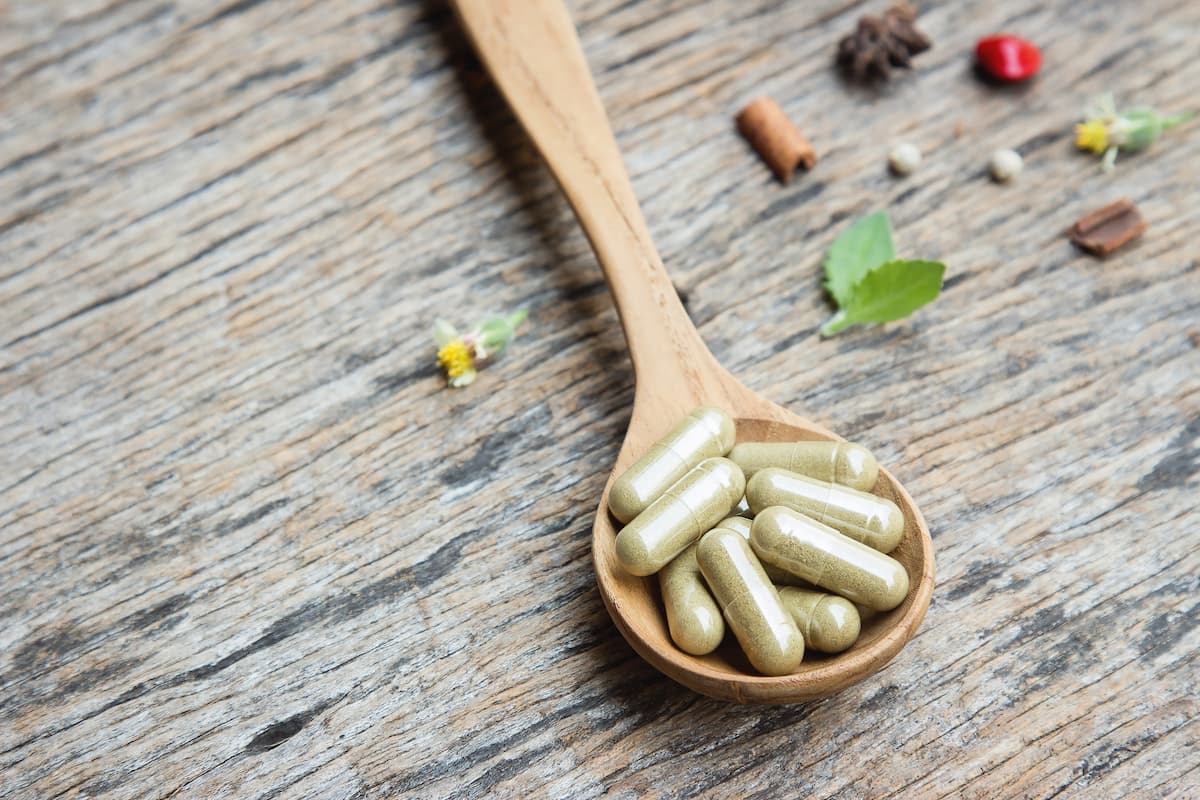
Ashwagandha affects thyroid hormone levels. Find out if you can use it.
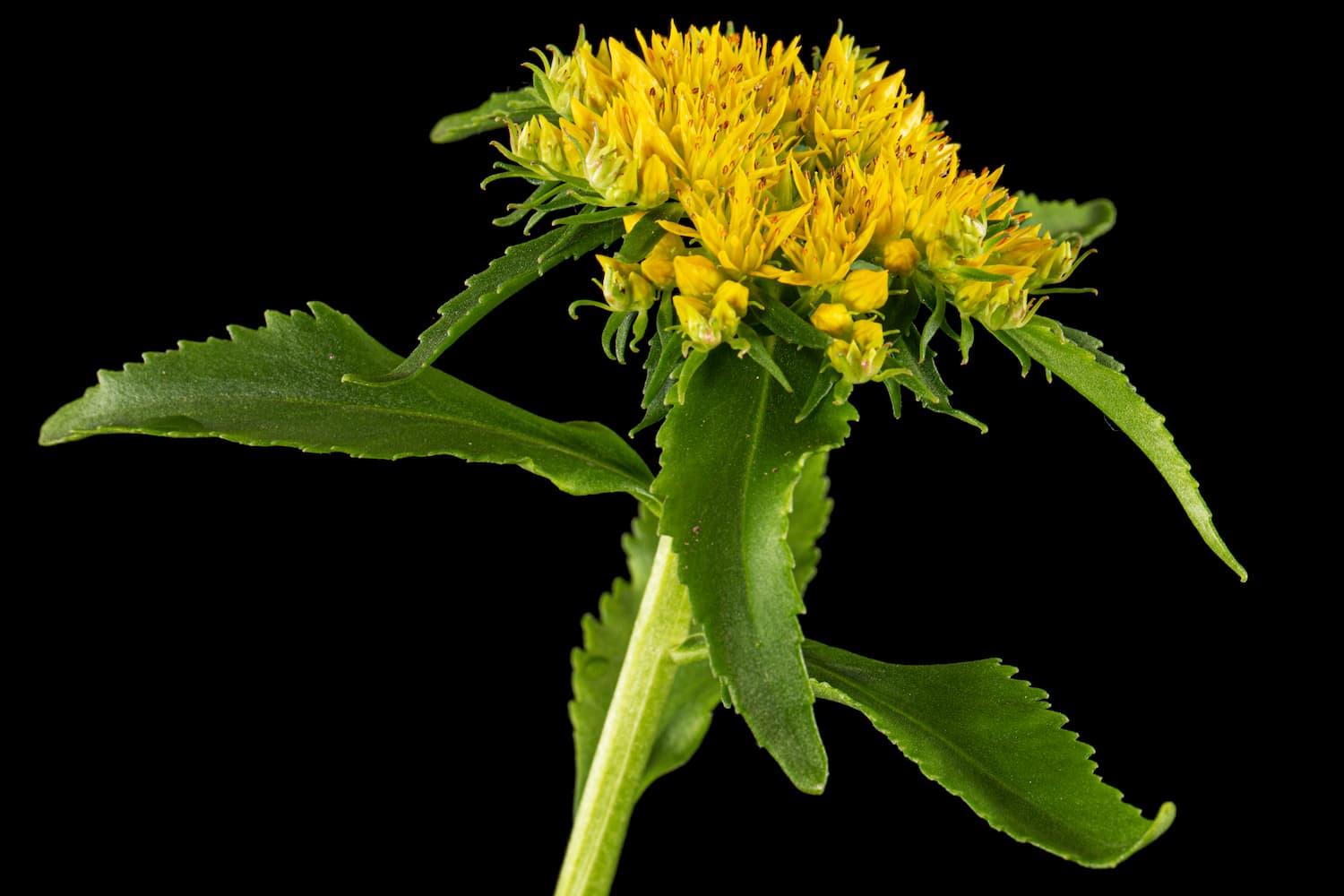
See how mountain pintail can affect your wellbeing.

Check out the opinions of doctors and other professionals about ashwagandha. Also find out what people on the forum think about it.
